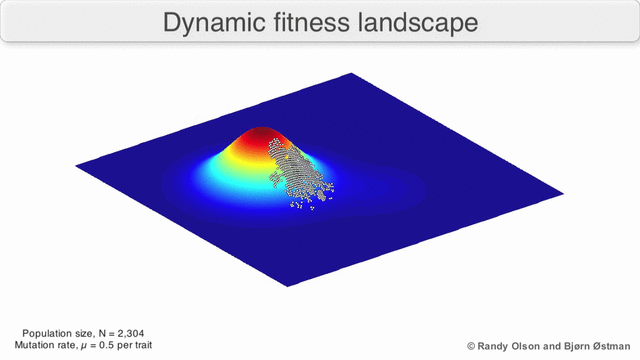Some say that the 20th century in economic terms started in October 1913 with the opening of the first Ford assembly line.
"On October 7, 1913, the production of the model that was to become the classic of the classics moved to Highland Park."
The Ford founder said that the customer could choose the color of the car as long as it was black, but more, it was not just any black, it had to be Japan Black, because it was the color that dried faster.
"it was the ability of japan black to dry quickly that made it a favorite of early mass-produced automobiles such as Henry Ford's Model T. The Ford company's reliance on japan black led Henry Ford to quip" Any customer can have a car painted any color that he wants so long as it is black ".
While other colors were available for automotive finishes, early colored variants of automotive lacquers could take up to 14 days to cure, whereas japan black would cure in 48 hours or less. "
The twentieth century, in economic terms, was a time when demand was greater than supply.
And when demand is greater than supply, the boss is the one who produces. Who produces is who establishes what is produced, what is put on the market and with what specifications. In this type of competitive universe, the critical success factor is price. Therefore, everything is done to be efficient, to increase the production rate, to reduce unit costs.
· "economics of scale;
· large, physically and temporally concentrated production facilities;
· long production runs;
· mass markets;
· task specialization; and
· standardization. "
One of the biggest enemies of efficiency is variety, because long production runs are wanted. The 20th century didn't want variety, it wanted blockbusters, it wanted big sellers, it wanted best sellers, it wanted market share. And the customers?
Customers agreed to exchange variety for uniformity because they were able to access goods at a lower price. Seth Godin uses admirable metaphor to portray this world. The world in which producers treat consumers like plankton, an indistinct and homogeneous mass, without individual wishes.
When the deal is price, when the deal is dictated by efficiency, when everything produced has a way out, then it is enough to look inside, it is enough to measure performance based on financial results. So I call the 20th century economic model Magnitogorsk or Levittown.
The city of Magnitogorsk in the USSR was rebuilt during Stalinism:
"In Magnitogorsk, there were two types of apartment, named 'A' and 'B'. They were the city’s sole concession to variety."
I read somewhere that the difference between type A and type B lay in the color of the lamps, white or orange. Do not think that the Magnitogorsk were a hallmark of the communist world. No, they were a consequence of an industrial model based on mass production and with little or no care with what users intended or valued. The United States also had its version, Levittown:
"In July 1947, on potato fields 20 miles from Manhattan, William Levitt pioneered the mass production of affordable homes. Variations in the 17,477 houses were minor; each had two bedrooms, a bath, living room and kitchen on a 750-square-foot By standardizing the units, Levitt eventually was able to put up more than two dozen a day, helping fill the enormous postwar demand. Over the years, innumerable changes to the homes have transformed the community. But even now, Levittown remains a kind of shorthand for the sameness of mass production that's starting to give way to mass customization. "
When the competitive landscape begins to ripple
As the twentieth century progressed, the imbalance between supply and demand was reduced until it passed to the other side: supply became bigger than demand.
When this happens, a real epistemological shock occurs. It is not enough to produce, power passes to those who buy, not to those who produce. And that changes everything. What is the use of being very efficient if the product does not leave the warehouse?
The more the imbalance accentuated, the more power passed to the buyer, the more the producer had to get off the pedestal and try to seduce the buyer.
And it is in this context of increasing competition, increasing variety, the growing power of choice for customers and consumers translates into a growing complexity and variety with a more uncertain, faster world, with many variants, with many more strategies.
I like to use the image of a landscape that ripples over time to illustrate what happens in the economic world as we abandon the 20th century paradigm:

While the twentieth century could be represented by a landscape with a single peak, and the further up the peak, the more return organizations had. And they were all looking for the same, to climb as high as possible and as quickly as possible to the top of the same peak. Whoever climbs faster will have a competitive advantage over the rest, given the virtuous mechanism of the effect of scale in a scenario governed by efficiency. The 21st century economy, on the other hand, is progressively wrinkling and generating more and more peaks. More and more companies, despite appearing to be operating in the same economic sector, do not compete with each other, as they specialize in serving different types of customers in different circumstances. One of the phrases I often repeat is that economics is a continuation of biology. And biology gives us great lessons that can be translated into economics. One of the stories I most like to tell is that of doctoral student Robert MacArthur who discovered that five different species of warblers could feed on the same tree without competing with each other, each species fed on a different area:

An example of what the Russian biologist G. Gause published in 1934 in the book “The struggle for existence”, where he reported the conclusions of a set of experiments, he carried out with paramecia and from which I quote the principle of exclusive competition:
"Two species cannot coexist indefinitely if they feed on the same type of scarce nutrient."
Making the parallelism for organizations; in a world bursting with variety, companies cannot be managed in the same way. Different "species" serve different types of customers. So, they need to be managed differently.
I use the label Mongo to describe this world of increasing variety where effectiveness is much more important than efficiency.













%2006.21.jpeg)












